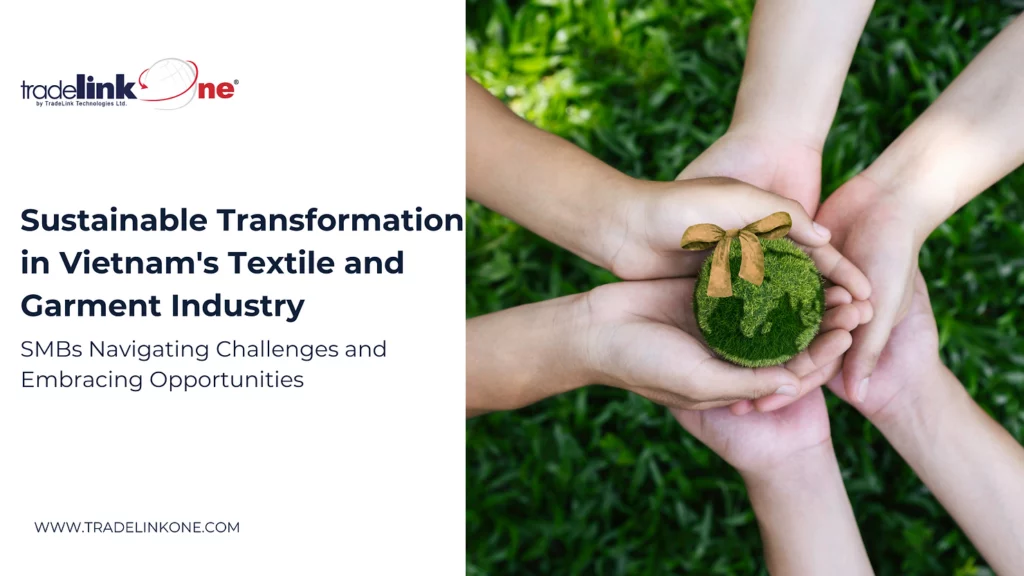
Textile and garment manufacturing stands as a cornerstone of Vietnam’s economy, providing millions of jobs and positioning the country as the third-largest exporter in the global market. However, amid its economic successes, the industry faces critical challenges related to environmental sustainability and ethical practices.
Environmental Impact and Challenges
The textile industry is notorious for its environmental footprint. From the release of pollutants into waterways to soil contamination from pesticide use, and the substantial carbon emissions generated by manufacturing processes, the toll on Vietnam’s environment is significant. Reports indicate that Vietnam is among the top contributors to marine plastic pollution and struggles with managing soil quality due to intensive agricultural practices linked to textile production.
In recent years, global economic slowdowns and shifts in consumer behavior have further challenged Vietnam’s textile exports. High inflation rates and increased economic uncertainties have dampened global demand, necessitating a reevaluation of production strategies and export approaches.
The Shift Towards Sustainability in Vietnam
Recognizing these challenges, Vietnamese enterprises are increasingly turning towards sustainability as a competitive advantage. The Vietnam UK Free Trade Agreement (UKVFTA) has imposed stringent requirements on safety, environmental protection, and consumer health, prompting local firms to enhance product quality and operational standards. This includes improving production capabilities, establishing sustainable value chains, adopting innovative technologies, and diversifying product offerings.
How Vietnamese Leading Brands Embrace Sustainability
The evolution towards sustainability in Vietnam’s textile industry marks a pivotal moment. Traditionally dominated by fast fashion and a linear production-consumption model, the sector is witnessing a transformation. Consumers are becoming more conscientious, demanding transparency in sourcing and production methods. This shift has spurred the emergence of sustainable brands that prioritize longevity over disposability and embrace eco-friendly materials like organic cotton, bamboo, and lyocell.
Leading brands are setting new standards by committing to ethical practices, transparent supply chains, and reducing their environmental impact. This cultural shift isn’t just about complying with regulations but about fostering a sustainable ecosystem that benefits both businesses and society.
Empowering Small Businesses: Navigating Sustainability Challenges
While large enterprises are better equipped to implement sustainability practices, small and medium-sized businesses (SMBs) face significant challenges. Limited access to financing, lack of technological infrastructure, and unfamiliarity with sustainable practices pose barriers. However, there are pathways for SMBs to integrate sustainability into their operations.
Pathways to Sustainability for SMBs
Navigating sustainability challenges in today’s market demands the right investment in solutions tailored for success. For SMBs, partnering with a seasoned solution provider is crucial. At TradeLink Technologies, with over 25 years of industry expertise, we’ve crafted effective pathways for over 400 brands and thousands of factories worldwide. What sets us apart is our ability to customize scalable solutions that meet diverse business needs.
Why Choose TradeLink Technologies?
1. Enhancing transparency
SMBs can differentiate themselves by providing full transparency regarding their sourcing, raw materials, and production processes. Utilizing technologies like our RM1 solution to record significant data points including the use of materials like plastic in packaging and identifying the country of origin for all components of the product, businesses can reassure consumers and stakeholders about ethical practices.
2. Enhance visibility
Achieving comprehensive data access is challenging amidst disparate sources and delayed information. Our Raw Material Tracking solution centralizes data control, ensuring environmental stewardship throughout the supply chain. Real-time insights into supplier compliance enable informed decisions, reducing carbon footprints and optimizing resource use. Integration with QR codes enhances consumer engagement, fostering trust in sustainable practices.
3. Reasonable price, outstanding service
Our solutions are user-friendly, featuring interfaces translated into Vietnamese and supported by comprehensive training. From implementation to after-sales support, our team ensures a seamless experience. Competitive pricing underscores our commitment to delivering outstanding service and professionalism to more businesses.
For SMBs ready to embrace sustainability, TradeLink Technologies offers a clear pathway forward. Contact us today to learn more about our solutions, services, and pricing:
Phone: (+84) 2839110039
Email: support.vn@tradelinkone.com
Let us empower your business to thrive sustainably in the global marketplace.
The Road Ahead: A Sustainable Future
As Vietnam moves towards sustainable textile manufacturing, collaboration among stakeholders is crucial. Government policies promoting sustainability, investments in green technologies, and consumer education will shape the industry’s future. Embracing sustainability enables Vietnamese textile enterprises to lead globally while protecting the environment for future generations.
In conclusion, Vietnam’s textile and garment industry faces a pivotal moment. Prioritizing sustainability isn’t just a business choice but a moral imperative. Integrating sustainable practices can reduce environmental impact, boost competitiveness, and meet evolving consumer expectations. With global markets increasingly favoring sustainability, Vietnam’s textile industry can set an example of balancing economic prosperity with environmental stewardship, emerging as a resilient leader in responsible industrial practices worldwide.
References
European Youth Portal. (n.d.). How to reduce my carbon footprint. Retrieved June 28, 2024, from https://youth.europa.eu/get-involved/sustainable-development/how-reduce-my-carbon-footprint_en
RMIT University Vietnam. (2019, November). Recent sustainable trends in Vietnam’s fashion supply chain. Retrieved June 28, 2024, from https://www.rmit.edu.vn/news/all-news/2019/nov/recent-sustainable-trends-in-vietnam-s-fashion-supply-chain
WTO Center. (n.d.). Going green is critical for the Vietnam fashion industry. Retrieved June 28, 2024, from https://wtocenter.vn/chuyen-de/23034-going-green-critical-for-vietnam-fashion-industry
Vietnam Green Building Council. (n.d.). Vietnam’s chance to become a leader in sustainable fashion manufacturing. Retrieved June 28, 2024, from https://vgbc.vn/en/vietnams-chance-to-become-a-leader-in-sustainable-fashion-manufacturing/
—
About TradeLink Technologies,
TradeLink Technologies (TradeLink) was founded in 1999 with a mission to create advanced supply chain solutions for global brands and retailers. We provide visibility, accuracy, and advanced distribution solutions for over 400 global brands and more than 50 logistics companies, leveraging a network of over 11,000 suppliers across 70 countries. With our latest local and cloud-based scanning and barcode applications, our solutions are scalable to fit businesses of all sizes. TradeLink’s strength lies in our industry expertise in supply chain management and utilization of cutting-edge technology. Learn more at: www.tradelinkone.com
